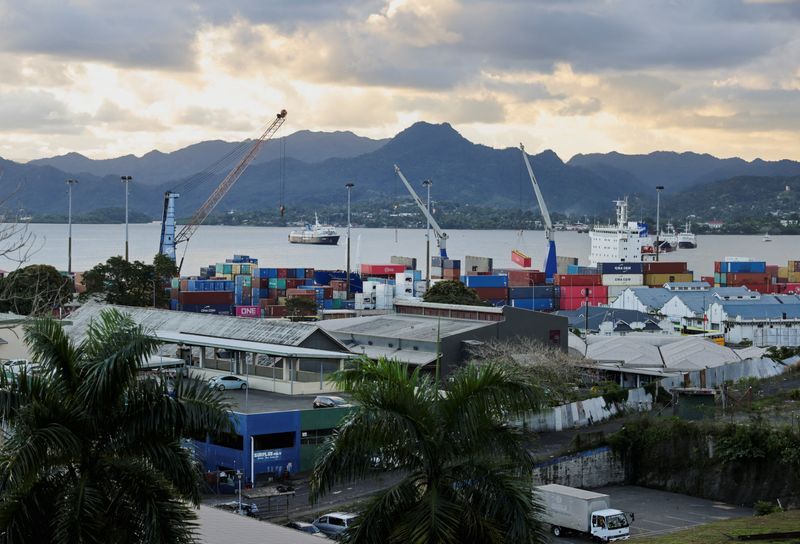By Kirsty Needham
SYDNEY (Reuters) – Growth in the Pacific islands is expected to slow to 3.6% this year from 5.8% in 2023 as the post-pandemic recovery fades and Fiji, which has lost half of output in the region has slowed significantly, the World Bank said on Tuesday.
A prolonged slowdown was caused by weaker investment, rising climate risks and structural challenges, a report said. Without immediate action to boost investment, Pacific island nations will struggle to reduce poverty and create new economic opportunities, the report said.
The Washington-based global lender said investment in Pacific countries has contracted on average in seven of the past 15 years.
In a “worrying outlook”, investment growth in 11 Pacific island countries is expected to be around 1% annually this decade, significantly lower than the average growth of 4.2% between 2000 and 2019, the report said.
Natural disasters cost an average of 1.5% of gross domestic product per year, and many Pacific islands struggle to manage economic shocks after disasters such as cyclones, and are stuck in a cycle of ‘build, destroy and repair’, the report said.
While several smaller Pacific island countries that rely on tourism saw growth, Fiji’s growth is expected to slow to 3% by 2024 as tourists from Australia and New Zealand return.
Fiji’s public debt is among the highest in the region at 79% of GDP in 2024 and is a third higher than pre-pandemic levels.
In Vanuatu, tourism was hit by the liquidation of national airline Air Vanuatu, causing a significant economic shock and slowing growth to 0.9%.
Vanuatu has experienced a decade of shrinking investment, the World Bank said.
In addition to investments in sustainable tourism and agriculture, the region also needs investments in ports, inter-island shipping and digital connectivity, the report said.
Despite having some of the largest maritime zones in the world, the Pacific islands have failed to fully benefit from sustainable fishing, aquaculture and marine biotechnology, the report said.
The cost of internet connectivity is relatively high and speeds are poor, compared to the rest of the world, says World Bank senior economist Dana Vorisek.

“There really needs to be a focus on digital connectivity,” she told a media briefing in Suva.
Reforms to payment systems and more digital payment services are needed to increase the impact of remittances sent back to families by offshore workers, officials said.


